
Graduate School of Biomedical Sciences
We train inquisitive and determined scientists looking to pursue careers in biomedical research, management, academia and health care. If you’re looking for a post-baccalaureate (post-bac) or a professional health program, we can help you develop your academic credentials to get there.
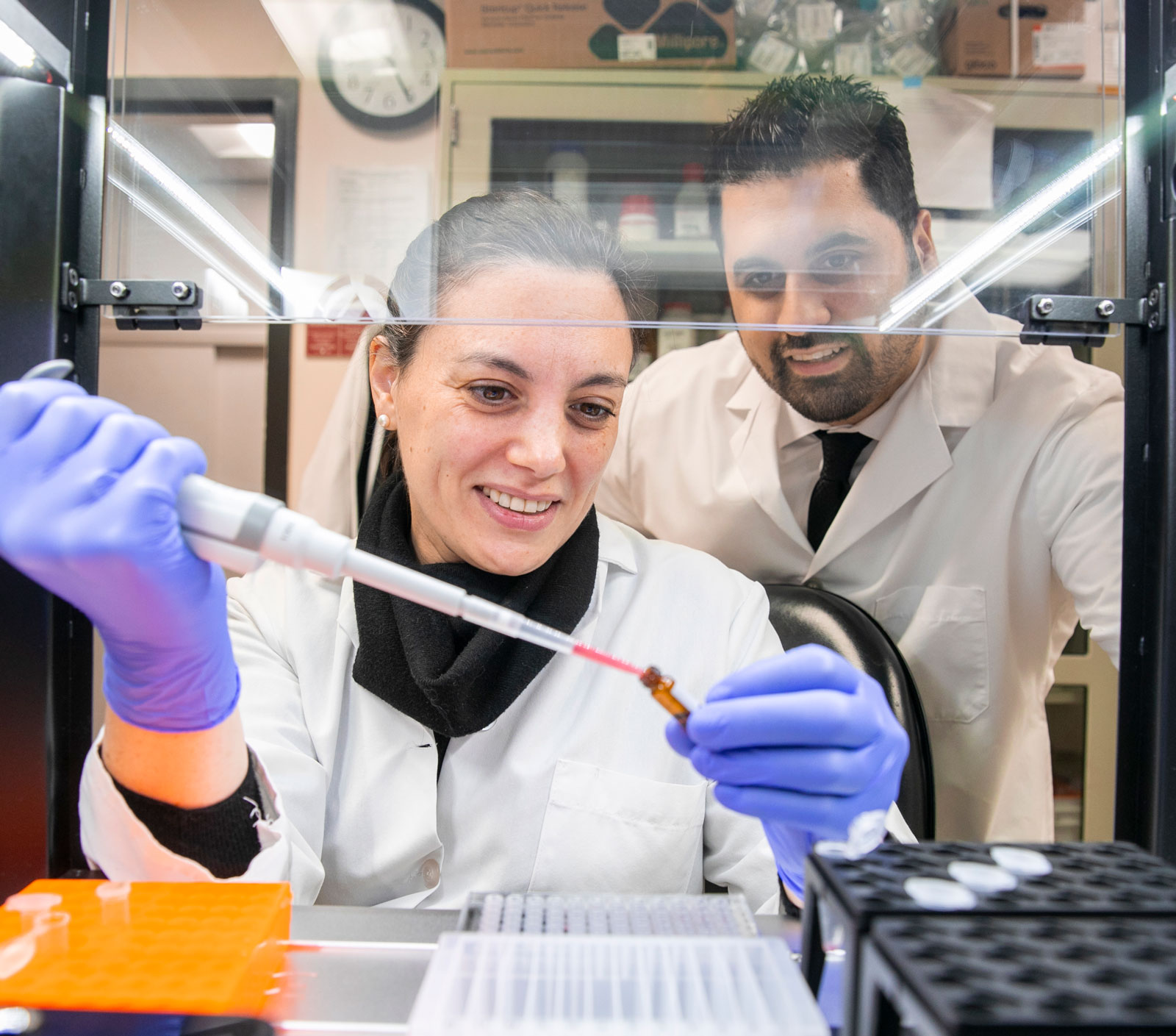
The GSBMS is home to exciting research advances across the biomedical sciences. Our M.S. and Ph.D. programs allow you to specialize and follow your scientific journey wherever you choose. Become a clinical laboratory scientist, a research manager at a pharmaceutical firm, or a research professor—whatever your scientific aspiration, we can put you on that path.
Programs Tailored to Your Goals and Interests
Whether your aim is to start working as a clinical laboratory scientist as soon as possible, enter an intensive Ph.D. program or build up your academic credentials before medical school, we have something for every biomedical science student. All our programs meet specific educational goals.
Discipline-Based Programs
Pre-Professional Programs
Accelerated Interdisciplinary Biomedical Sciences Master’s Program
A one year master's program for aspiring medical students.
Interdisciplinary Biomedical Sciences Master’s Program
A two year master’s program for aspiring scientists, dentists, physicians, veterinarians, etc.
Clinical Laboratory Sciences Master's Program
This master’s degree will prepare you for CLS licensure and work in a clinical laboratory.
Dental Linker Program
A one year accelerated master's program for aspiring Touro College of Dental Medicine students. By referral only from the TCDM Admissions Committee.
Why GSBMS is a Great Place for Aspiring Scientists
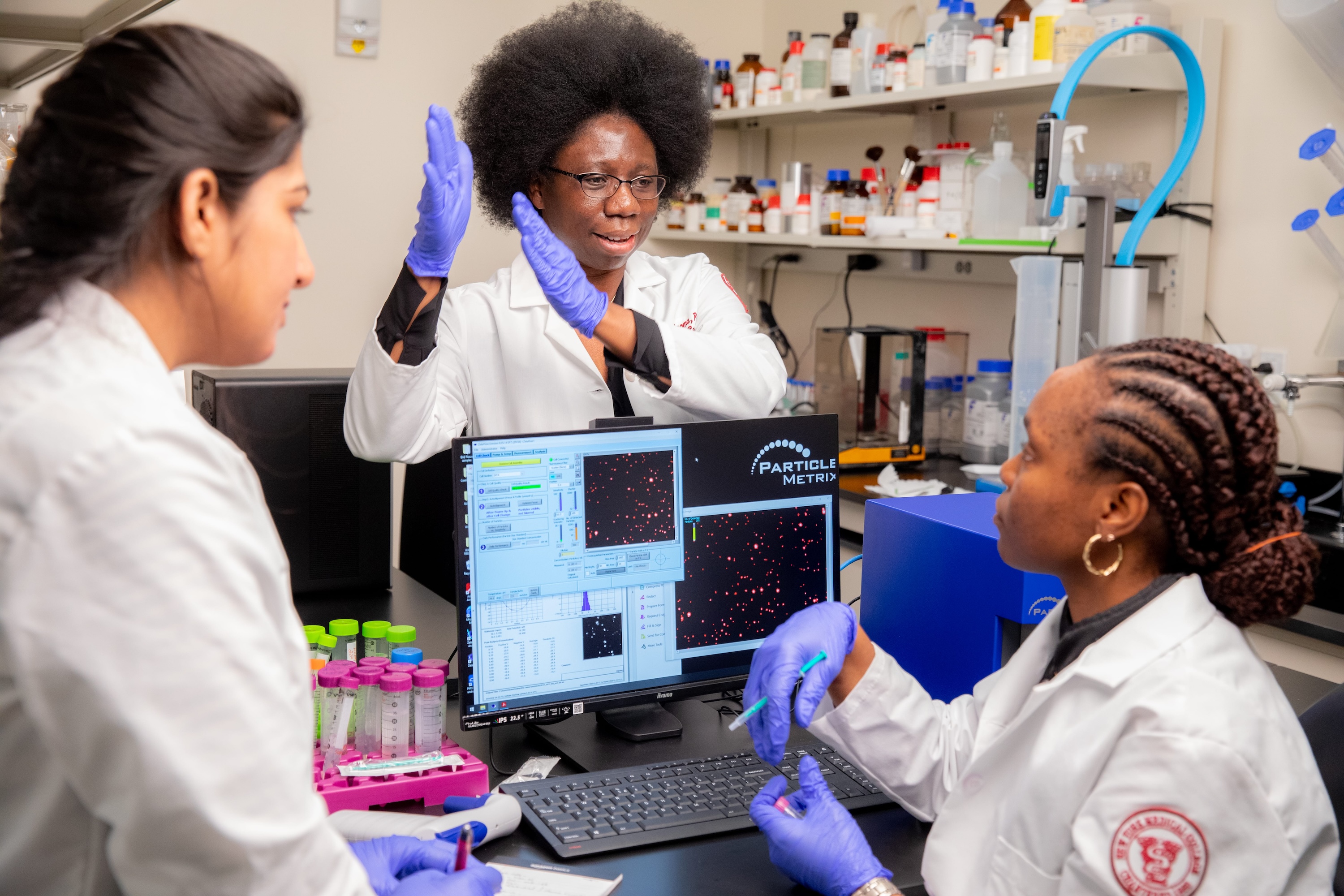
- Small class size and hands-on mentorship and research training.
- Interdisciplinary learning environment in partnership with the NYMC School of Medicine.
- Extensive opportunities for both research and professional-focused careers.
- More than $30.6 million in sponsored research and scholarship support.
- Opportunities for real-world lab experience in every program.
Quick Facts
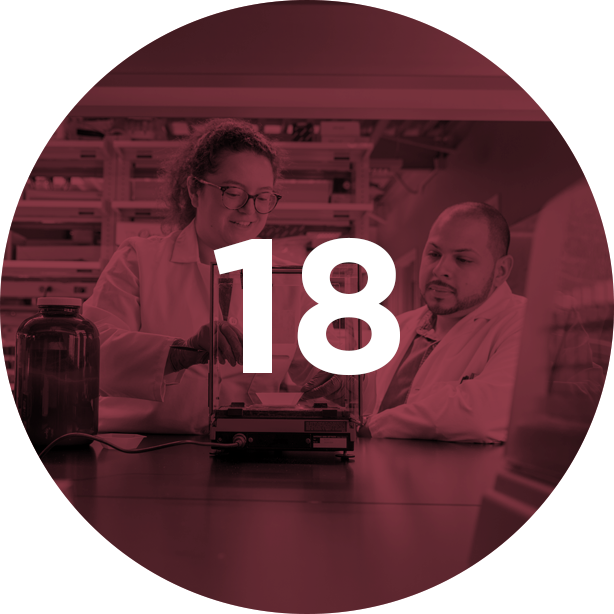
18 academic programs across the biomedical sciences.
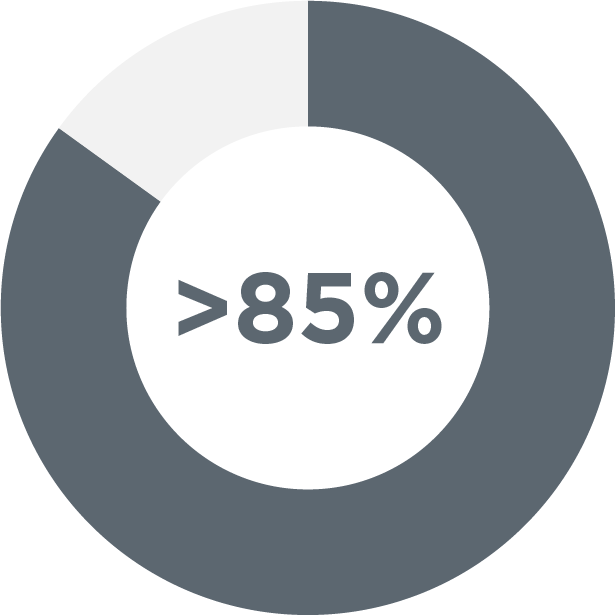
>85% student acceptance rate to medical school programs from our post-bac programs.
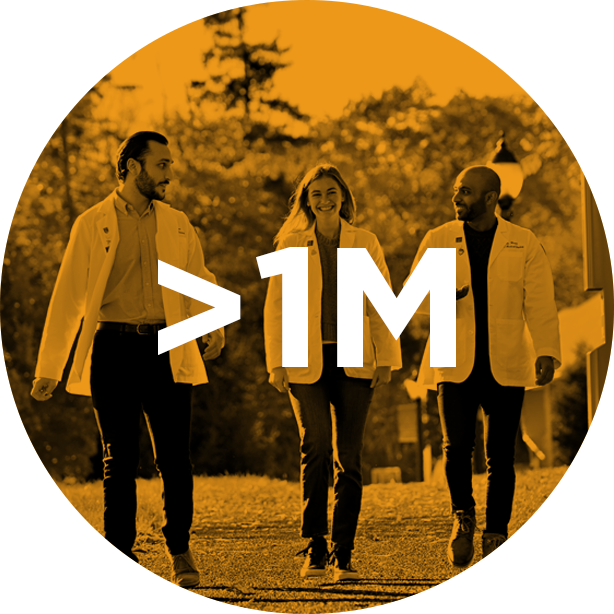
More than $1 million in scholarships annually to M.S. and Ph.D. students.
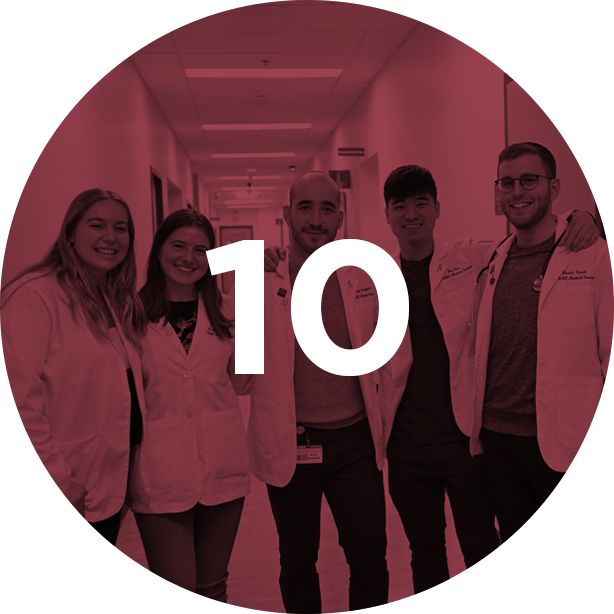
10 hospital affiliates in NY & CT, providing training for our clinical laboratory sciences students.
Recent GSBMS News
Uncovering an Early Driver of Pulmonary Arterial Hypertension
New NYMC Research Identifies EP300 as a Key Regulator of Blood Vessel Damage, Opening the Door to Earlier Detection and Intervention
Rethinking the Brain’s Response to Opioids
NYMC Researchers Reveal Findings That Could Inform More Targeted Approaches to Addiction Treatment
SOM Student Juliet Manu Named SEQUINS Scholar
Manu Is One of Just 10 Medical Students Chosen Nationwide to Participate in the Program to Advance Brain Health Equity
Dr. Paul Arnaboldi Receives More Than $500,000 NIH Grant to Support Respiratory Vaccine Development
The Funding Will Support Research to Combat Pseudomonas aeruginosa, a Prominent Cause of Fatal Healthcare-Acquired Infections
Upcoming GSBMS Events
Mar 5Thursday, March 5, 2026, 9am - 4:30pm ET4th Annual Pathology, Microbiology & Immunology Research Symposium: Call for Abstracts
Graduate School of Biomedical Sciences
Mar 27Friday, March 27, 2026, 8:30am - 3pm ET37th Annual Graduate Student Research Forum
Graduate School of Biomedical Sciences
May 15Friday, May 15, 2026, 10 - 11am ETGSBMS Commencement Rehearsal
Graduate School of Biomedical Sciences
May 15Friday, May 15, 2026, 1 - 2pm ETGSBMS Class of 2026 Awards Ceremony
Graduate School of Biomedical Sciences
NYMC Graduate School of Biomedical Sciences (GSBMS) At-A-Glance
[MUSIC PLAYING]
[AUDIO DESCRIPTION] From above, a stately brick building with white columns stands across a driveway from a green lawn. A tall pine tree and a deciduous tree stand in the foreground.
[MARINA HOLZ] Although we established graduate studies at New York Medical College in 1910, the graduate school was formed in 1963. And since then, we've been offering both master's and PhD degrees in several disciplines. We also offer master's degrees in Professional Master's Studies and also in Clinical Laboratory Sciences.
[AUDIO DESCRIPTION] Three men pose for a photo.
[AUDIO DESCRIPTION] Marina K. Holz, Ph.D., M P H. '23, Dr. P.H., '24, Dean, Graduate School of Biomedical Sciences, Professor of Cell Biology and Anatomy.
[MARINA HOLZ] New York Medical College is attractive to prospective students for several reasons. One of the reasons is because of our relatively small size. Our students get to interact closely with faculty members. Another reason is that we truly have a world-class faculty that focus on many important areas of investigation, such as Lyme disease research, flu vaccine research, research into concussions, and speech language pathology.
[MUSIC PLAYING]
[AUDIO DESCRIPTION] Two men work in a lab.
[AUDIO DESCRIPTION] Victor G. Garcia, Ph.D. '15, Associate Professor of Pharmacology.
[VICTOR GARCIA] It all starts with a student, particularly at New York Medical College. If they're interested in some of the research that we do here, we welcome them with open arms to contact us and get a hold of us. There are current programs at New York Medical College that help foster these relationships and help provide students with a small period of time that they can come in and be with a mentor and be in the lab and get lab experience.
[AUDIO DESCRIPTION] From above, a wide green lawn covers the foreground, with the brick building beyond under a blue sky with white clouds.
[AUDIO DESCRIPTION] Charles, M.S. in Biomedical Sciences.
[CHARLES WHITE]:You can't possibly beat the professors, the faculty, the staff that are here for you and that are here to help you grow, help you feel special, and help you just make it through your day-to-day activities. It's a family here. And it's really an amazing experience. You'll get the education. And that's great. But you'll also get more to come along with that.
[MUSIC PLAYING]
[AUDIO DESCRIPTION] A woman sits at a microscope as a man stands next to her and watches.
[AUDIO DESCRIPTION] Jonathan A.N. Fisher, Ph.D., Associate Professor of Physiology.
[JONATHAN FISHER] Mentoring and training this next generation of leaders in health and biomedical research, it's something I feel pretty passionately about. One great thing about New York Medical College that I've felt since I came here is that really no student falls between the cracks.
[AUDIO DESCRIPTION] Kenneth M. Lerea, Ph.D., Associate Dean for Master's Programs, Professor of Cell Biology and Anatomy.
[KENNETH LEREA] The faculty are very proud of the accomplishments of all the graduates. The students have demonstrated true success and have brought pride to the NYMC community.
[AUDIO DESCRIPTION] Students walk in and out of a building.
[AUDIO DESCRIPTION] Elizabeth Berry, Ph.D. '23, Assistant Professor of Biochemistry and Molecular Biology, Program Director of Biochemistry and Molecular Biology.
[ELIZABETH BERRY] This school is really different and is much different than my high school or my undergrad in the sense that I've never been surrounded by so many different cultures before. And I think that's really important because you get to learn so many different facts and different perspectives that people come from. And New York Medical College is really good at bringing people together in that sense.
[AUDIO DESCRIPTION] A group of people in white lab coats pose for a photo in a lab.
[MUSIC PLAYING]
[AUDIO DESCRIPTION] Tetyana Cheairs, M.D., M.S.P.H., Associate Dean for Ph.D. Programs, Assistant Professor of Pathology, Microbiology and Immunology.
[TETYANA CHEAIRS] I'm really proud of our faculty and how much they work with students-- how much they're willing to help our students. And I'm proud of our graduates who all achieved great things in life and how inclusive and diverse the school is. We really believe that everybody, regardless of your background, deserve a good education.
[MUSIC PLAYING]
[AUDIO DESCRIPTION] A banner for New York Medical College hangs vertically on a pole outside the brick building.
[AUDIO DESCRIPTION] Sangmi Chung, Ph.D., Professor of Cell Biology and Anatomy, Neurology, and Psychiatry and Behavioral Sciences.
[SANGMI CHUNG] I really like the community here-- like friendly people, collaborators, like enthusiastic students. And I think the beautiful campus is always a plus.
[AUDIO DESCRIPTION] From above, the campus dotted with green trees fills the screen.
[MUSIC PLAYING]
[AUDIO DESCRIPTION] Marina K. Holz, Ph.D., M P H. '23, Dr. P.H., '24, Dean, Graduate School of Biomedical Sciences, Professor of Cell Biology and Anatomy.
[MARINA HOLZ] What I like about New York Medical College is the close-knit community of scientists, educators, students who work together to solve many important problems, not only here in Westchester County, but also nationally and internationally.
[MUSIC PLAYING]
[AUDIO DESCRIPTION] Seal: New York Medical College, Chartered 1860. Logo: NEW YORK MEDICAL COLLEGE, A MEMBER OF TOURO UNIVERSITY, Graduate School of Biomedical Sciences.
NYMC laboratories have a long history of producing high-growth reassortant seed viruses for the influenza vaccine, ultimately used to produce 400 to 500 million doses of flu vaccine annually.
The NYMC Genomics Core Laboratory in the Department of Pathology, Microbiology and Immunology was selected to assist New York State in the identification of COVID-19 variants. Data is be used and helps build an understanding of disease manifestations, therapy or vaccine evasion and efficacy, and will support other discoveries to inform public health intervention.

